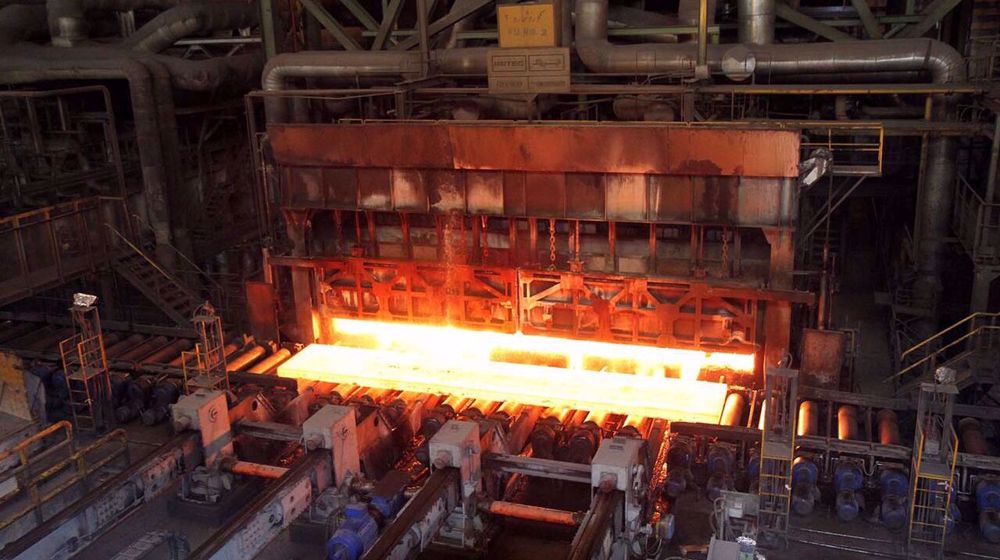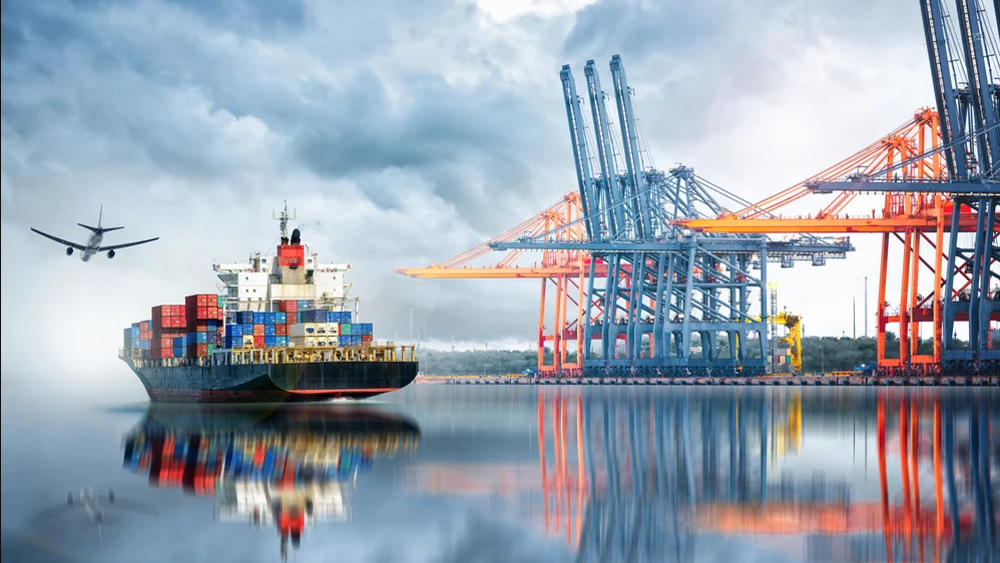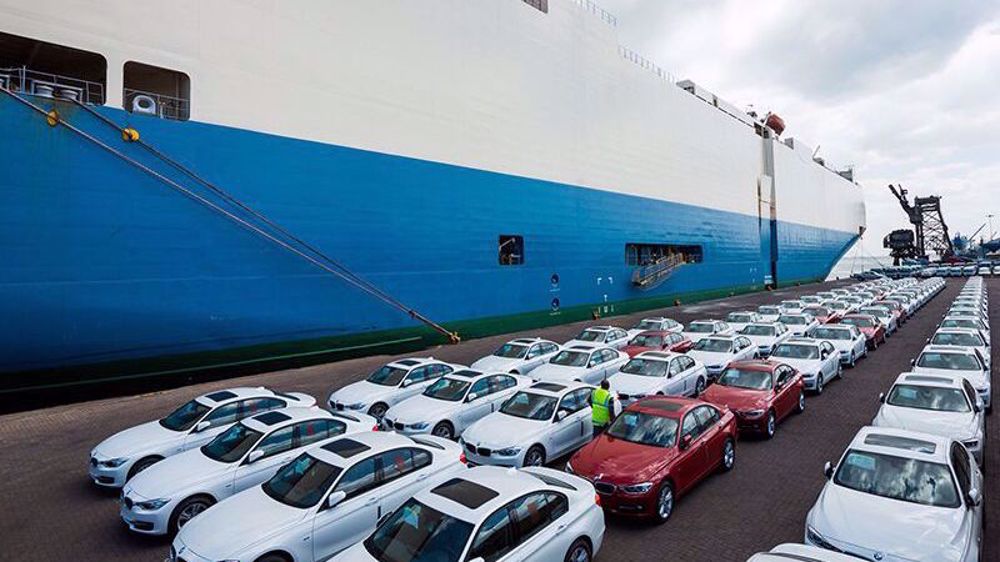‘Lucky’ Iraq renders US campaign against Iran futile
As economic interdependence is growing between Iran and Iraq, private companies are being given the pivotal role to nurture increasingly powerful and mutually beneficial relations between the two important neighbors.
A delegation of 32 business people is tagging along as President Hassan Rouhani is currently visiting Iraq to shore up ebullient trade partnership against US subterfuge.
The private sector provides the wiggle room for both countries to navigate the complex maze of US sanctions imposed on Iran after President Donald Trump withdrew from a landmark 2015 nuclear deal with the Islamic Republic in May.
For their run-of-the-mill maintenance, Iraqis depend on Iranian companies for everything from food to machinery, electricity, natural gas, fruits and vegetables.
Iraq’s infrastructure has been destroyed in 30 years of wars, mostly after the US invasion which saw the bulk of the highly-skilled human force leave the country.
Iran offers an invaluable pool of human capital, services and resources which are literally within a walking distance from the Iraqi border.
Hence, choking such a vital source is as much damaging - if not worse - to Iraq as it is to Iran, explaining President Barham Salih’s declaration that Iraq’s interests lie in maintaining very good relations with Iran.
“I deliberately repeat this sentence several times. We Iraqis have an interest in strengthening these relations with Iran, and we must see them as a main issue among all our regional relationships,” he said Monday, with Rouhani on his side.
Rouhani and Iraqi Prime Minister Adel Abdul-Mahdi oversaw the signing of several trade deals on oil, trade, health, and a railway linking the southern Iraqi oil city of Basra and the Iranian border town of Shalamcheh.
Most importantly, private companies earned a real feather to their cap as the two sides agreed on measures to make it easier for businessmen and investors to obtain visas.
The new deals will convince Tehran that Baghdad is serious about not being “party to the system of sanctions against Iran” as Prime Minister Abdul-Mahdi said in February.
Last year, Iran exported $8.7 billion worth of commodities to Iraq, overtaking Turkey with $7.3 billion of exports. According to Secretary General of Iran-Iraq Chamber of Commerce Hamid Hosseini on Monday, Iran is likely to also surpass China as the biggest exporter to the Arab country this year.
Last year, 1.5 million Iraqis visited Iran but this figure rose to 2 million in the first seven months of the Iranian calendar year (March 2018-February 2019).
Hosseini said the number of Iraqis visiting Iran is expected to hit 3 million by the end of the year on March 21, including 300,000 visiting as medical tourists.
Iran also hopes to discuss reviving up to $8 billion worth of technical and engineering projects signed by its private companies in 2014, which were suspended as Daesh terrorists invaded the Arab country.
Banking issues are a top priority of Rouhani’s visit, with Hosseini saying they had been ironed out and trade exchanges had improved and stabilized.
Last month, Iran’s Central Bank governor Abdulnaser Hemmati and his Iraqi counterpart signed an agreement to develop a payment mechanism for euro and dinar-based transactions to facilitate banking between the two countries.
Officials have promised to grow the already flowering trade which has jumped from $2 billion a year eight years ago to over $12 billion today, and is expected to rise to $20 billion in two years.
Other than economic benefits, improved ties between Iran and Iraq have important security and geostrategic implications for both countries.
Iran was famously the first country to respond to Iraqi calls for help after Daesh terrorists in June 2014 captured the main northern city of Mosul and threatened to overrun the capital Baghdad and the oil-rich region of Kirkuk.
President Salih on Monday thanked Iran for its "support" and said Iraq was "lucky" to have it as a neighbor, without making any reference to the US.
The United States remains entrenched in its bid to sever Iraq’s ties with Iran. Trump made a secret trip to Iraq in December and made comments that US forces should stay in Iraq to keep an eye on Iran.
Hosseini said American efforts to disrupt relations between the two countries were futile.
“The Americans want to disrupt our relations, especially with neighboring countries, through economic sanctions, but given Iraq’s demographic density in the borders with Iran, our economic and social exchange will continue.”
Iraq and Iran share a 1,400-kilometer-long (870 miles) border. Apart from consumer goods, Iraq relies on Iran for electricity.
Gas imports from Iran generate as much as 45 percent of Iraq's 14,000 megawatts of electricity consumed daily. Iran transmits another 1,000 megawatts directly, making itself an indispensable energy source for its Arab neighbor.
Observers say Rouhani’s visit will make it all but impossible for the White House to refuse to exempt Baghdad, which has openly rebuffed Washington’s pressure to cut its energy ties with Iran.
“The futility of US pressure on Iraq over Iran should serve as a fresh reminder of the fundamentally questionable nature of Trump’s one-dimensional and confrontational Iran policy,” former University of Tehran and Boston University professor Kaveh Afrasiabi wrote.
“This effort to demonize Tehran as a force of subversion with respect to its neighbors flies in the face of the opposite reality: the increasingly powerful and mutually beneficial relations between Iran and Iraq,” he added.
Israel kills 5 more paramedics in southern Lebanon: Health ministry
Iran to launch ‘new, advanced’ centrifuges in response to IAEA resolution: AEOI
Yemen fires hypersonic missile at Israeli airbase
VIDEO | New Delhi chokes under toxic smog as air quality remains at hazardous levels
VIDEO | Press TV's news headlines
VIDEO | ICC's arrest warrant for Netanyahu to worry Western politicians: Former British diplomat
Iranians protest against Israel after Netanyahu ICC warrant
Germany undecided on complying with ICC arrest warrants for Israeli war criminals












 This makes it easy to access the Press TV website
This makes it easy to access the Press TV website